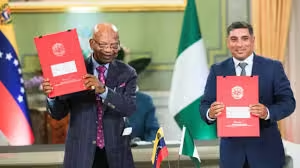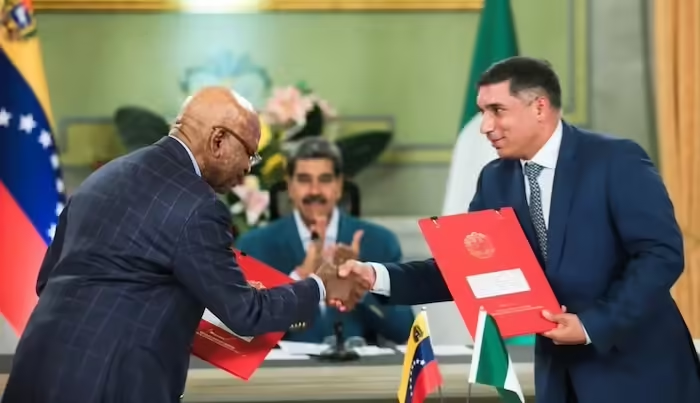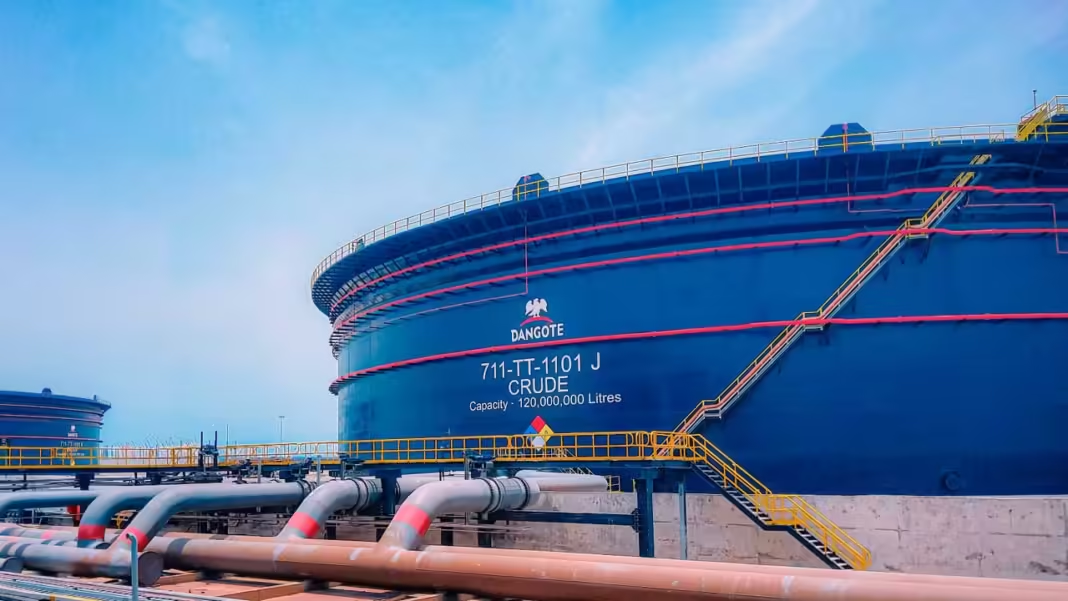Venezuelan state-owned PDVSA and the Nigerian capital company Veneoranto Petroleum Ltd. signed an agreement to develop two natural gas prospects in the areas of Barracuda, located in territorial waters of the Gulf of Venezuela bordering Colombia, and Boca de Serpiente, located in Delta Amacuro state, bordering a territory under claim by Guyana.
“I am pleased that the investment process for gas production from the Deltana platform has been accelerated. Very soon we will be exporting gas to Africa,” said Venezuelan President Nicolás Maduro, who was present at the signing of the agreement Aug. 8 in Caracas. The agreement was signed by the Minister of Petroleum and President of PDVSA, Pedro Rafael Tellechea, and the representative of Veneoranto Petroleum Limited, Arthur Eze.
Veneoranto is the subsidiary created in Venezuela by Atlas Oranto, a Nigerian company in the oil and natural gas area.
Th offshore prospect called Barracuda in the Gulf of Venezuela, is estimated to have reserves of 20 Tcf of natural gas and about 2 trillion barrels of condensate, according to available official information.
According to studies PDVSA carried out between 2013 and 2014, this prospect could be larger than the Cardón IV field, where the Italian ENI and the Spanish Repsol made an important gas and condensate discovery in 2009.
PDVSA is seeking investors for 25 development opportunities in offshore Gulf of Venezuela waters, which have the advantage of nearby onshore infrastructure, the Paraguaná Peninsula, where the two major refineries Amuay and Cardón are located, according to previous reports.

Colombia and Venezuela share an extensive 2,219-km land border. They also share a maritime border over which there are territorial disputes.
Details of the Boca de Serpiente prospect, located in the area known as Plataforma Deltana, are not available. The prospect is located about 200 km from the neighboring island of Trinidad and Tobago, and borders the Atlantic Ocean and the area under claim with Guyana.
In addition to this new agreement with Veneoranto, Venezuela signed with Trinidad and Tobago five agreements related to gas exploration and production to develop offshore gas reserves, according to previous report July 24.
Official figures show that Venezuela has massive proven reserves of 303 billion barrels of oil and 200 Tcf of natural gas.
“With these investments we will be the fourth natural gas reserve, it is important that investments keep flowing. We are reliable safe partners,” Maduro said.
Maduro was reelected in presidential elections July 28, but these results have been contested, triggering protests. The opposition candidate Edmundo Gonzalez declared himself president-elect, based on results of tally sheets that give him a victory with 67% of the votes.
The National Electoral Council has not published the electoral results, as established by the electoral law, alleging a cybernetic attack on the system.
The Carter Center, an international observer that the Maduro-controlled CNE invited, confirmed that Edmundo Gonzalez won the elections in Venezuela and that there is no evidence of hacking, according to media reports from Aug. 8.
“With investors, we have no problem. To investors from Europe and the United States I say, hurry up, here are the opportunities, but if they let yourselves be disturbed by the political noise, well, welcome countries of BRICS,” Maduro added.
Maduro, as he faces political pressure from Western countries, said Aug. 2 that Venezuela may transfer rights to develop oil and gas projects to BRICS countries. “If these people from the north and their partners in the world make the mistake of their lives, then those oil blocks and those gas blocks that were already signed will go to our allies in the BRICS,” Maduro said.
BRICS includes Brazil, Russia, India, China and South Africa. From the beginning of 2024, Egypt, Ethiopia, Iran, and the United Arab Emirates joined. Saudi Arabia was also invited to join, but has yet to officially confirm membership. If Saudi Arabia became a member, the group would control 42% of global oil production and 35% of total oil consumption, US Energy Information Administration data indicates.
Maduro has said previously that Venezuela is considering joining BRICS.
Russia holds the BRICS presidency for 2024 and has invited Maduro to the BRICS leaders summit due to take place in the Russian city of Kazan Oct. 22-24.
Watch the signing ceremony below:
Video Credit: Telesur English




